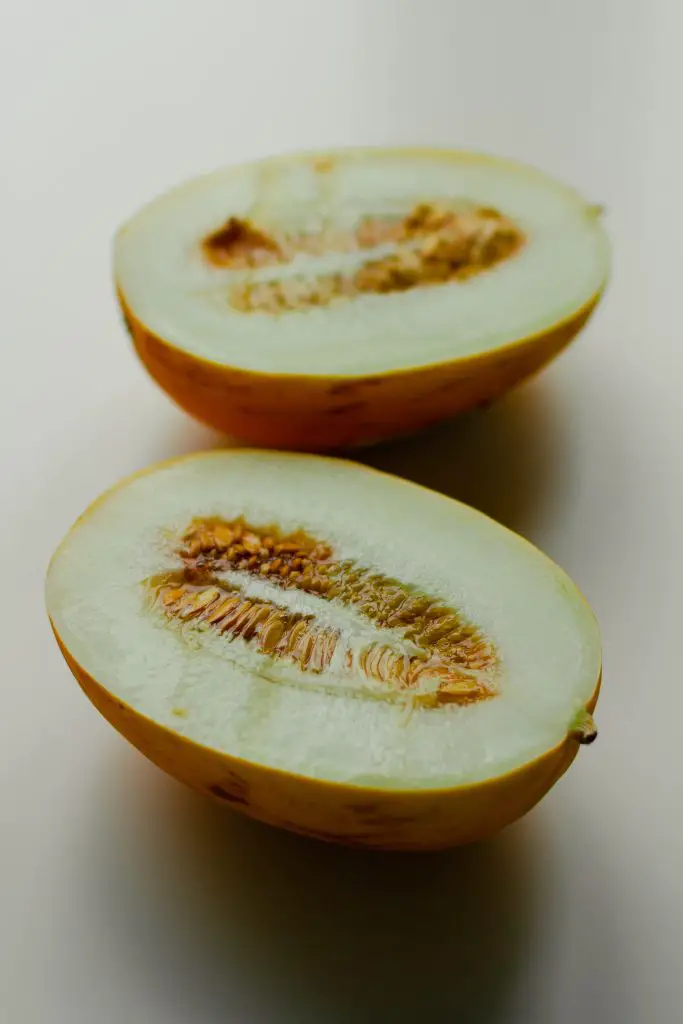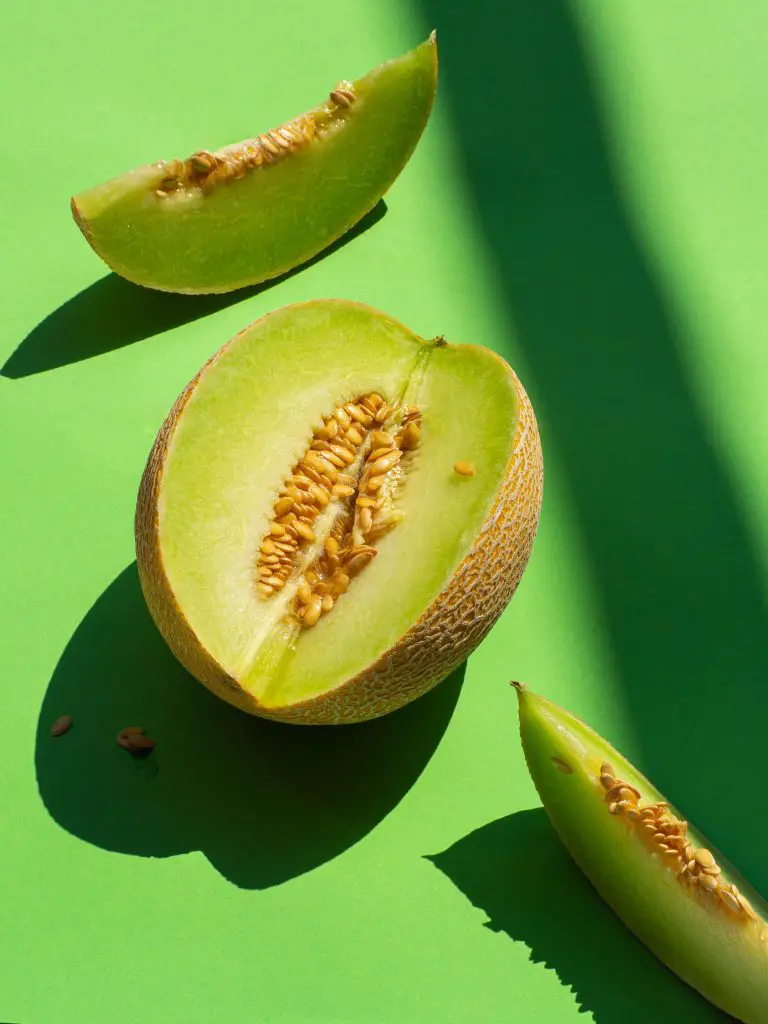Chicken and melon may seem like a strange combination, but not when it comes to honeydew melon. Whether you keep your chickens inside or in your garden, you’ll be glad to know that both of these edible plants are safe for chicken keepers too.
That’s because they have similar nutritional needs, meaning that they make great co-stars in any backyard chicken production. The truth is that honeydew melons are incredibly high in vitamin C. As such, chickens can eat them with little risk of deficiency symptoms.
However, it isn’t just the vitamin C content of honeydew melon that makes it so nutritious for chickens; it also contains an incredible amount of water! On average, one large honeydew melon has more than 200 millilitres (7 oz) of water – and this means that it’s good for your fowl too!

Will Chickens Eat Other Types Of Melons?
However, honeydew melon isn’t the only type of melon that chickens can eat. They can also eat watermelons and cantaloupes are pretty much any other melon type that you can think of quite happily. However, you do need to cut the melon up for them or at the very least cut in half so they can get into the flesh easily.
They will also quite happily eat the rind and order it also the seeds in the centre of the melon without any problems so there’s no need to cut that part of the plant off.
Can You Feed Chickens The Foliage Of Honeydew Melon Plants?
Chickens will enjoy the honeydew melon they can also eat the foliage of the plant which is the vine that runs cross the ground to create the melons. However, like most plants that chickens eat they prefer when the foliage is fresh and not dried out too much.
If you give them a half dead vine with only a few leaves they only pick out at fresh leaves and leave the dried out vine behind so you do need to try to pick the vine as early as possible after it has produced the melons for the season.

Can You Feed Chickens Too Many Honeydew Melons?
It is possible to give your chickens too many honeydew melons to eat which can make from sick over time mainly because of the high sugar content in the melons which is not particularly good for chickens. To ensure that you do not have any problems with the chicken is always a good idea to provide them with a balanced diet with a range of different foods which of course can include honeymelon melons.
We suggest using the melons in conjunction with other scrap fruit vegetable from your kitchen or vegetable garden such as lettuce, zucchinis, pumpkin, and a range of other things. These things should supplement the diet of your chicken which should also contain commercially purchased palletized chicken food or grain which will keep them happy and healthy and laying plenty eggs for a long period of time.
What Types Of Plants Should Chickens Be Eating?
As mentioned above chicken should be eating a wide range of different foods that includes fruits and vegetables, palletized chicken food and even things like insects such slugs and snails which they absolutely love. To help them access insects it is a good idea to give your chickens some time outdoors each day. Not only will they be able to get fresh air and exercise from their excursions, but they’ll also be able to feast on your garden produce and live bugs!
However, it is important to note that if you do let them out of the pen there are a couple of things you need to be wary of. The first is that they will make a mess of your garden if you let them and secondly there are some ornamental plants and even edible plants that may be problematic for the chickens to eat.
In terms of edible plants, the things that they should avoid are things like green tomatoes and green potatoes which both contain chemicals which are toxic to the chickens. Additionally, it is not safe to assume that all the leaves of edible plants will be absolutely fine for chickens to eat. An example of this is tomato leaves which also contain similar chemicals to green tomatoes which can be toxic for chickens.
To avoid this problem the general rule of thumb you should apply is that if you are happy to eat it then it will usually be quite ok for the chickens to eat.
In terms of ornamental plants, it is generally far more risky to feed them these types of plants because there are so many of them out there that we commonly grow that are extremely toxic examples of this include foxgloves, hollyhocks, and lily-of-the-valley to name a few so I would generally avoid ornamental plants unless you are absolutely certain that they are not toxic for chickens.
Can You Feed Chickens Stale Or Mouldy Food?
You might be asking yourself, is it safe to feed your chickens mouldy or stale food? The answer is no. Although you may be tempted to give them any old leftovers, that’s not the best idea. The truth is that rats, mice and other small animals are attracted to food that isn’t fresh and they can cause a lot of damage if they get into your birds’ enclosure.
Additionally, the old leftovers may be ok for the chickens initially and then quickly turn mouldy in the pen which can cause the chickens to be exposed to pathogens that can be extremely harmful for their health. So I would generally provide them only with relatively fresh food to ensure that you do not have any problems.
Conclusion
A variety of fruits and vegetables make up the diet of a happy, healthy chicken. The honeydew melon is a safe fruit for chickens to eat, but it is also a great source of fibre, so don’t overfeed them with this fruit.
Relevant Articles
Can Chickens Eat Capeweed? Is It Safe?
Can Chickens Eat Jerusalem Artichokes? Is It Safe?
Can Chickens Eat Snow Peas? Is It Safe?
How Many Honeydew Can A Plant Produce?
